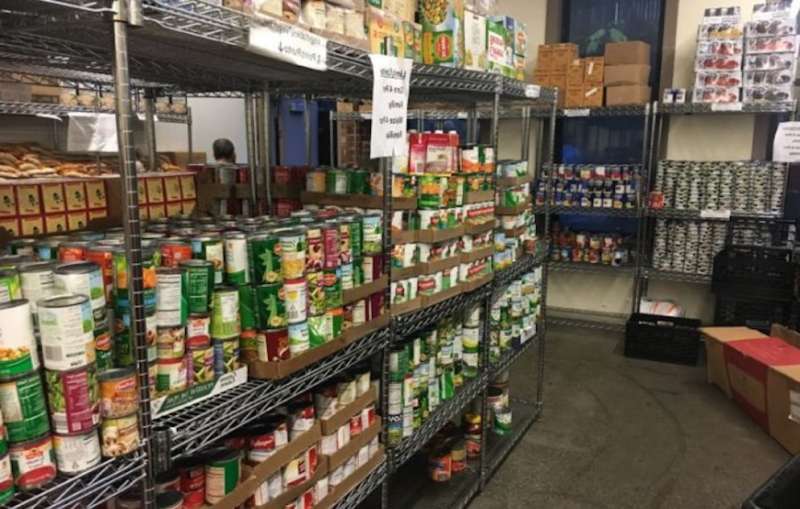Urban food pantries – an unreliable resource for the food insecure

In 2016, over 15.6 million U.S. households experienced food insecurity at some point, meaning at least one member of the household had limited access to adequate food due to lack of money or other resources. For those who are food insecure, food pantries can be a vital resource for accessing food and meeting basic nutritional requirements. Pantries usually receive food and drink from food banks – large non-profit organizations that purchase, collect, and store foods from a variety of sources such as manufacturers, wholesalers, and government agencies, which they then distribute to families in need. While food banks may provide some central organization for pantries, the pantries themselves operate individually. Each pantry can set their own standards about who they serve, how they serve, and what they make available to their food-insecure clients. This variability in operational standards can lead to differences in access to food across pantries.
A study co-authored by Dr. Andrew Maroko, a professor of Environmental, Occupational, and Geospatial Health Sciences at the CUNY Graduate School of Public Health & Health Policy (CUNY SPH) examined the five dimensions of access in a sample of 50 food pantries in the Bronx borough of New York City: food item availability, accessibility of the pantry by clients, accommodation of food preferences and restrictions, affordability, and the acceptability of the quality of the food offered. "We aimed to take a nuanced look at access to food pantries, which is a potentially important source of nutrition for those who are food insecure," said Maroko. The findings from the study were published in the Journal of Community Health.
Analysis of the data revealed three main findings. The first finding was that the pantries were not reliably open limiting accessibility to them. Only about half of the pantries were open during the hours listed in an online directory, and several had had prolonged or indefinite closures. The second finding showed that even when pantries were open, all five access dimensions showed deficiencies such as limited inventory, few hours during which the pantry was accessible, food handouts were pre-selected without consideration of preferences, opportunity costs, and items being offered were of inferior-quality. The third finding was that open pantries frequently had insufficient food supply to meet client demand. Maroko noted that due to the mismatch between food supply and demand at the pantries, rules and informal "work-arounds" were often developed, leading to increased unpredictability of the access to and quality of food at pantries. Adherence to the rules versus implementation of informal work-arounds was worker- and situation-dependent and added to the unpredictability of food provisions at the pantries observed in the study.
The overarching finding of the study was that pantry food was an unreliable resource for those who were food insecure. Maroko and the investigators note that future research should explore the drivers of mismatched food supply and demand at pantries to create more predictable, reliable, and adequate food provision.
More information: Zoë A. Ginsburg et al. Unreliable and Difficult-to-Access Food for Those in Need: A Qualitative and Quantitative Study of Urban Food Pantries, Journal of Community Health (2018). DOI: 10.1007/s10900-018-0549-2


















